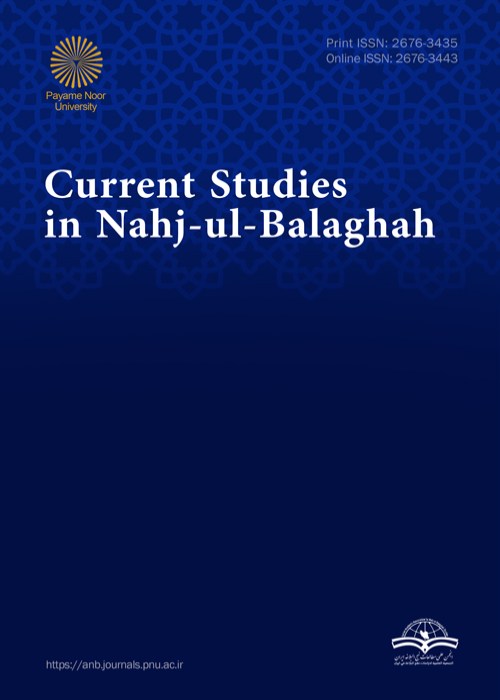Ponetic indications and its effect on meaning in the Sermons of Nahjul balagha
Sounds have a role in highlighting a person's ability to express their experiences. This is because it has a semantic function capable of carrying and highlighting the meaning. And that by focusing on the sounds and their special features. The aesthetics of these sounds and their ability to convey meaning are related to their general characteristics such as being voiced, voiceless, dark light, fricative, explosive and repetitive. There is no doubt that the sound has a great influence in determining the meaning. This article attempts to study the phonemic significance of the voiced and whispered voices in all the speeches of NahjulBalaghah. From a stylistic statistical perspective, it consists of dividing speeches into certain segments according to their themes, then counting all their voices and applying them with their characteristics. In the end, the percentages of the voiced and whispered voices in all speeches were obtained and analyzed on the basis of the specifics of their voices. The importance of this research lies in the study of the relationship between the sound and its meaning, and the study of the connotation inspired by sounds, as it is a phonological study that combines theory and practice in the modern phoneme lesson. And the acoustic and crosssectional analysis to reveal the acoustic structure is covered by a statistical study. After analyzing the speeches, it was determined that loud voices were more pronounced in military speeches (522177) and whispered voices were more in remorse speeches (88285%).
-
The aesthetics of fire and candle in the poetry of AlSarī al-Raffā based the phenomenology of Gaston Bachelard
Houman Nazemian, Ali Asvadi, Zahra Izadi *
Iranian Association of Arabic Language and Literature, -
Expressing the concepts of color aesthetics in Islamic literature and the works of artists of the second and fourth centuries of Hijra based on Max Luscher's color test (the sample examined by Bashar Bin Bard and Abul Ala Maari)
Ali Piranishal, Fatemeh Parchekani, , Abdollah Hosseini, Ali Yaghoubi *
Islamic Art Studies,




